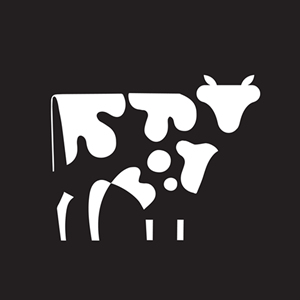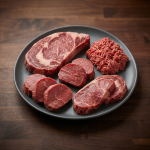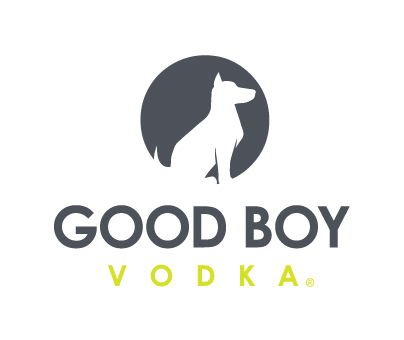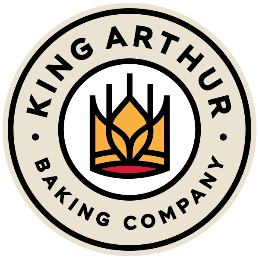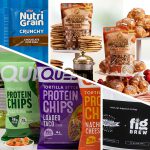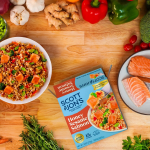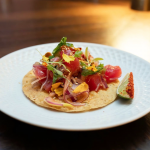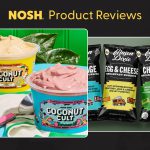Copper Cow Closes Round, Will Launch New Online Offering

Vietnamese coffee pour-over kit maker Copper Cow announced yesterday that it had closed an additional $8.5 million in funding. The capital will go towards helping the brand launch new online exclusive products, expand its presence in brick and mortar retailers and continue to build out a sustainable supply chain in Vietnam.
Cultivian Sandbox and Arborview Capital both lead the round, which also included participation by Siddhi Capital and Stormbreaker Ventures, along with returning investors Social Starts, Montage Ventures, CRCM and Silverton Partners. The new capital brings the company’s total funding to date to $11.5 million, $2 million of which closed in December 2018.
Founded in 2016, Copper Cow initially drew attention for its eye catching packaging, trendy coffee flavors and unique form factor — a disposable pour over sachet filter prefilled with ground coffee. Vietnamese coffee pour-over kits, which also contain sweetened condensed milk and black coffee, are its flagship product, but the company has also launched flavored coffees, such as lavender, ginger and rose, as well as a vegan coconut creamer.
Founder and CEO Debbie Wei Mullin said the company prioritized finding investors who could help the brand improve its operations, specifically around supply chain management, ingredient sourcing and ecommerce fulfillment. She added that it was at times difficult to find investors who didn’t want to pigeonhole the brand to focus on brick and mortar or online sales.
The round comes after a year of change for the company. Previously the brand focused largely on hospitality, foodservice and less traditional retail channels. At the time of its 2018 raise, the brand was sold in roughly 1,500 department stores including Nordstroms, Macy’s, Neimen Marcus, Dillards, Bloomingdales.
However, the Covid-19 pandemic caused the company to shift its priorities to online sales and more traditional mass, grocery and natural retailers, Wei Mullin said. Copper Cow is now sold in 3,000 doors — the same numbers as it was in 2018 — but now includes key retail partners such as Whole Foods Market, Walmart and Sprouts, and a minimal department store presence. Elsewhere, ecommerce now represents 70% of the company’s total sales.

“In order for us to keep continuing to grow, and for us to really have the impact on the sustainable supply chain that we’re building, we need to be able to think of different ways that someone comes into understanding the brand and trying the brand for the first time,” Wei Mullin said. “I’m a real big believer in just meeting my customers where they’re at.”
Ultimately though, she added, those changes have paid off, with the company hitting profitability in 2020.
In going omnichannel, the company is rethinking how its product offerings fit into mass, grocery and online retailers, Wei Mullin said. While the company’s 5-packs are fine for stores, she said, the format is not as effective online, with extra unnecessary packaging, a higher minimum order for customers, and confusion with pricing in retailers. The brand also has larger “coffee club” boxes online — which contain a mix of creamers and individually wrapped filters — but the products in each box are determined by the company, not the consumer.
Moving forward, the online store will instead sell “build-your-own” boxes where shoppers can select which coffee flavors and creamers they want. This approach is designed to drive shoppers to Copper Cow’s own website, where products carry a higher margin, and offering customization will also encourage consumers to set up subscriptions, Wei Mullin said.
To support these efforts, the company this month brought on Jay Poropatich, former VP of acquisition marketing for companies such as GoPuff and Drizly, as its VP of marketing. As retail will also be a focus, the company also plans to hire more talent to support that channel as well. In December Wei Mullin hired Ashley Kinkaid-Anderson, formerly of Iconic Protein and Perfect Bar, as the company’s new VP of sales.
As it scales, Copper Cow is still trying to close the awareness gap: according to Wei Mullin, the bulk of the brand’s consumers have never previously tried a Vietnamese coffee, while those that have often worry that it’s too arduous to try to make at home. So though the company has retained its “Vietnamese Coffee” label, it now uses the term more to describe the beans’ point of origin — similar to Columbian coffee or Kona coffee — rather than a limited style of coffee drinks.
“You’ve got people who are like, ‘I’ve never even heard of Vietnamese coffee,” Wei Mullin said. “What we spend most of our time with the past four years, is how do we get somebody to understand a product that they have never heard of…For [these consumers], you’re actually showing them that there’s a whole new way to drink coffee.”
